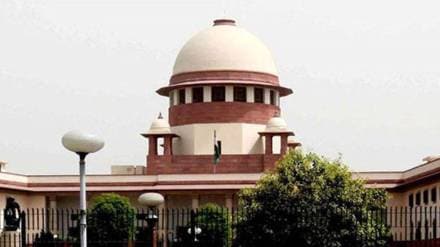SC Verdict on Article 370: Holding that Article 370 in Jammu and Kashmir was a temporary provision and that Jammu and Kashmir did not retain its sovereignty upon its accession to the Union of India, a five-judge Constitution bench of India led by Chief Justice of India DY Chandrachud on Monday held that the Presidential Order scrapping the special status granted to Jammu and Kashmir was constitutionally valid.
The verdict was delivered by a five-judge Constitution Bench presided by Chief Justice of India DY Chandrachud and comprising Justices SK Kaul, Sanjeev Khanna, BR Gavai, and Surya Kant. The court, however, directed the Election Commission of India to hold elections by September 30, 2024, and asked the Centre to restore full statehood to Jammu and Kashmir “at the earliest”.
Also Read: No question of Brexit-like referendum on Article 370: Supreme Court
The Supreme Court held that Jammu and Kashmir did not retain its sovereignty when it joined the Union of India. “Proclamation of Maharaja stated that the Constitution of India will supersede. With this, the para of Instrument of Accession ceases to exist… Constitutional set up did not indicate that Jammu and Kashmir retained sovereignty… There is a clear absence in the Constitution of Jammu and Kashmir to the reference of sovereignty..That the State of Jammu and Kashmir became an integral part of India is evident from Articles 1 and 370 of the Constitution of India,” the bench said, adding that the state of Jammu and Kashmir did not have internal sovereignty different from other states.
CJI Chandrachud said that the issues considered by the bench included whether Article 370 was temporary, whether substitution of ‘constituent assembly’ by legislative assembly by using 370(1)(d) was valid, whether Presidential order was invalid for lack of recommendation of J&K Constituent Assembly, whether the Presidential rule imposed in December 2018 and subsequent extensions were valid, whether the J&K Reorganisation Act bifurcating the state into two UTs was constitutionally valid and whether the Presidential proclamation was valid.
Also Read: Supreme Court sets up Constitution bench to hear pleas against abrogation of Article 370
The verdict came on a batch of pleas challenging the constitutional validity of the Narendra Modi government’s decision to scrap special status for Jammu and Kashmir through the abrogation of Article 370 of the Constitution of India. A five-judge bench of the top court led by Chief Justice of India DY Chandrachud had reserved its verdict on September 5 after 16 days of hearing that saw stakeholders like the Centre, the Jammu and Kashmir administration and the petitioners argue their side.
Clampdown ahead of SC verdict
Tight security measures were put in place in Jammu and Kashmir ahead of the Supreme Court’s judgment. Several prominent political leaders, including Mehbooba Mufti, Omar Abdullah, were placed under house arrest by the Jammu and Kashmir police. The Indian Express cited police sources as saying that Hurriyat chairman Mirwaiz Farooq has also been placed under detention at his residence.
Also Read: SC validates Article 370 abrogation, orders Jammu and Kashmir elections – 9 BIG takeaways
Authorities also suspended classes at the University of Kashmir and the Islamic University of Science and Technology (IUST) as partt of additional measures to prevent any untoward law and order situation as a result of the top court’s verdict. Duty magistrates and supervisors have also been appointed for all parts of Srinagar city to monitor the law and order situation.
The movement of security convoys has also been suspended, a communique from the Inspector General of Police (IGP), Kashmir said. The official has also urged escort vehicles of VIPs to stay clear of troublesome areas. Civilian movement and internet connectivity, however, continue unhindered.
Also Read: ‘Beacon of hope’: PM Modi hails SC verdict upholding Article 370 abrogation
The cyber wing of the J-K Police on Sunday urged people not to “indulge in propaganda”. “All social media users are advised to use social media platforms responsibly and refrain from sharing rumours, fake news, hate speech or obscene, violent and defamatory content,” read a poster.
“Moreover, social media users are cautioned not to indulge in the propagation of terrorist and secessionist ideology and false narratives. Circulation of any incriminatory content received from other users without verifying actual facts may be avoided and on noticing/receiving any such information, instead of sharing with others, immediately inform Cyber Police Kashmir,” it added.
